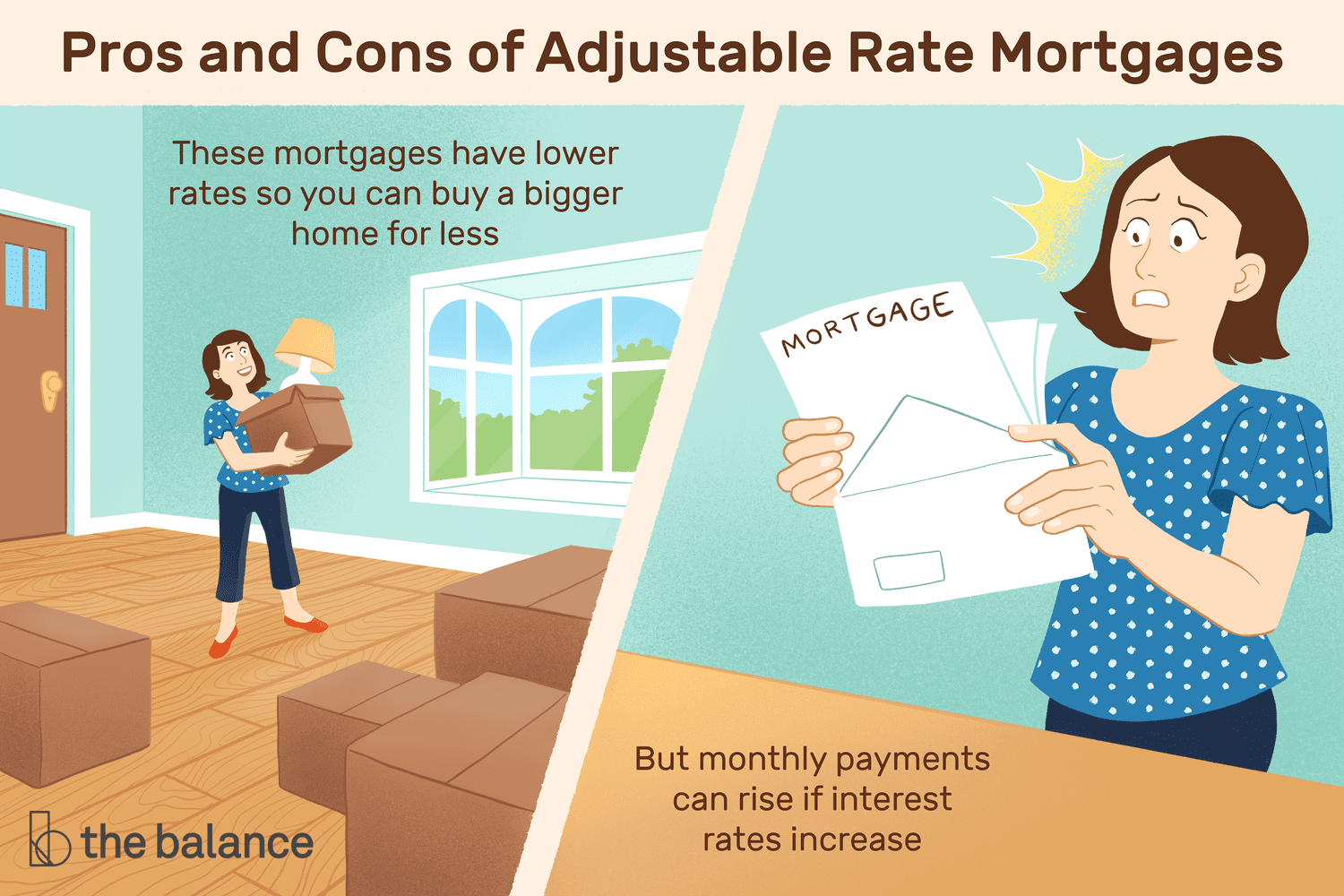When shopping for a mortgage, you may come across adjustable rate mortgages (ARMs). Unlike a fixed-rate mortgage, an ARM has an interest rate that can change over time based on market conditions. While an ARM can offer some benefits, it’s essential to weigh the pros and cons before deciding if it’s the right choice for you. In this article, we’ll explore the pros and cons of adjustable rate mortgages.
Pros:
- Lower Initial Interest Rate
One of the primary advantages of an ARM is that it typically has a lower initial interest rate than a fixed-rate mortgage. This can be an attractive option for homebuyers who want to keep their initial monthly payments lower.
2. Potential for Lower Payments in the Future
While the initial interest rate may be lower, the real benefit of an ARM is the potential for lower payments in the future. If interest rates drop, your mortgage payment could decrease as well, allowing you to save money over the life of the loan.
3. Shorter Term Options
ARMs typically come with shorter terms than fixed-rate mortgages, such as 5, 7, or 10 years. This can be beneficial for homeowners who plan to sell or refinance their home in the near future, as they won’t be locked into a long-term mortgage.
4. Protection Against Interest Rate Increases
Some ARMs come with interest rate caps, which limit how much the interest rate can increase over time. This can provide some protection against interest rate increases and help homeowners budget for future payments.
Cons:
- Interest Rate Fluctuations
The biggest disadvantage of an ARM is the potential for interest rate fluctuations. If interest rates increase, your mortgage payment could increase as well, making it more difficult to budget for the future. This can be a major drawback for homeowners who want stability and predictability in their monthly payments.
2. Uncertainty
Because the interest rate can change over time, there’s a certain level of uncertainty associated with an ARM. Homeowners may not know how much their mortgage payment will be in the future, making it difficult to plan and budget for other expenses.
3. Longer-Term Risk
While ARMs come with shorter terms, they can be risky for homeowners who plan to stay in their home for a longer period. If interest rates increase and the homeowner can’t refinance or sell the home, they could be stuck with a higher mortgage payment for the long term.
4. Prepayment Penalties
Some ARMs come with prepayment penalties, which can be costly if you decide to refinance or sell your home before the end of the loan term. Make sure to read the terms of your loan carefully to avoid any unexpected fees.
5. Complex Terms
ARMS can have complex terms and conditions that can be difficult to understand. It’s essential to work with a reputable lender who can explain the terms of your loan in a way that makes sense.
In conclusion, an adjustable rate mortgage can be an attractive option for some homebuyers, but it’s important to weigh the pros and cons before deciding if it’s the right choice for you. While an ARM can offer lower initial payments and potential savings in the future, it can also come with uncertainty and risk. Make sure to do your research and work with a reputable lender to find the best mortgage option for your needs.
